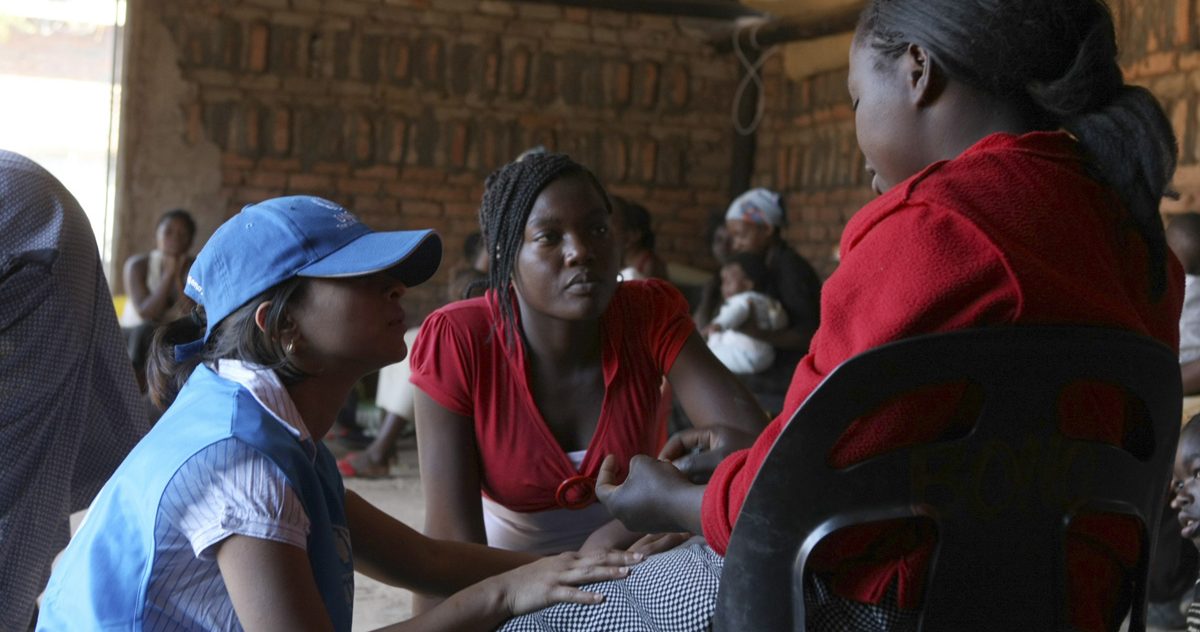Our fight against sexual exploitation, abuse and harassment
Tackling sexual exploitation and abuse against the people we serve, together with sexual harassment in the workplace, is a top priority for UNHCR.
Our vision
UNHCR provides a trusted, respectful and inclusive environment where the people we serve and those who work for the organization feel safe, heard, equipped and empowered to speak up for themselves and others and to take robust and visible action, as appropriate, to eradicate sexual exploitation and abuse as well as sexual harassment.
Our position is clear, and has been reiterated on a number of occasions by our High Commissioner: sexual misconduct is unjustifiable and must be eradicated from UNHCR operations.
With some 15,000 staff and affiliated workforce working primarily in the field, in permanent and direct contact with vulnerable people, UNHCR is one of the biggest and most operational UN agencies. Our programmes last year aimed to benefit more than 67 million people, and were implemented together with more than 1,000 partners.
We have taken a series of decisive actions over recent years to reinforce our mechanisms for preventing and responding to sexual exploitation, abuse and harassment.
UNHCR now has a well-established, effective safeguarding team, with a global remit, which includes the Inspector General’s Office, the Ethics Office, the Legal Affairs Service and the Staff Welfare Services, among others. A Senior Coordinator was appointed in March 2018 to lead UNHCR’s work on sexual exploitation, abuse and harassment.
Learn more on actions we are taking to tackle sexual misconduct:
1. Prevention and awareness raising
UNHCR works systematically to identify and reduce risks, including risks of sexual exploitation, abuse and harassment, in all its operations. Eradicating sexual misconduct requires us to pay attention to the values and attitudes that underpin our behaviours, and the structures or systems that support or reinforce these behaviours.
In 2002, we introduced a UNHCR Code of Conduct, which all personnel are required to sign. This code is the subject of mandatory refresher training each year, with a strong focus on values and inclusion, diversity and gender.
2. Encouraging survivors to come forward
We are acutely aware of the enormous difficulties that survivors of sexual exploitation or abuse, or sexual harassment, face in coming forward, and of the deep professional and personal considerations – and even fears – that may prevent them from doing so. We are striving to address these concerns, by ensuring that reporting mechanisms are known, accessible and trusted, and that victims who report sexual misconduct feel safe and protected.
3. Investigations and disciplinary actions
In recent years, we have strengthened the capacity and expertise of our investigative and disciplinary processes, to ensure timely and effective handling of sexual misconduct cases, which is crucial to ensure accountability.
UNHCR’s Office of the Inspector General (IGO) is an independent internal body responsible for investigating allegations of misconduct that involve people or entities with a direct contractual link with UNHCR. The IGO is staffed with professional investigators, including senior female investigators, have received a specific training on how to handle sexual exploitation and abuse and sexual harassment cases.
UNHCR also has a dedicated team of professional lawyers in its Legal Affairs Service, including employment law specialists who are experienced in advising on sexual misconduct.
4. Working in Partnership
UNHCR is fully committed to working in partnership to eradicate sexual exploitation and abuse and sexual harassment. We have a zero tolerance approach to sexual exploitation and abuse by our partners and have embedded robust measures in the management of our relationships with them to address risks and ensure accountability. UNHCR is also participating fully in inter-agency efforts to eradicate sexual exploitation and abuse and sexual harassment.

